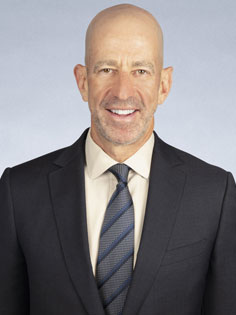
Why Safe Deposit Boxes May be Creating More Problems Than Protections
BY BERNARD A. KROOKS, CERTIFIED ELDER LAW ATTORNEY
SPECIAL GUEST CONTRIBUTOR: AMY C. O’HARA, CERTIFIED ELDER LAW ATTORNEY
For generations, families relied on bank safe deposit boxes to safeguard important documents, jewelry, and sentimental heirlooms. Having a key to a safe deposit box once symbolized prudence and financial responsibility. But in today’s world of digital records, cloud storage, and home safes, these boxes are not only outdated but they can create serious legal and practical challenges, especially after a death. Understanding how safe deposit boxes work, and how access is handled when an owner or co-owner dies, can prevent costly delays and emotional frustration for loved ones.
When a person who rents a safe deposit box dies, the box and its contents are typically sealed by the bank. Financial institutions do this to protect themselves from liability and to ensure that only an authorized person, usually the executor or administrator of the estate, can access the contents. The problem is that the executor often cannot be appointed until the Will is submitted to the Surrogate’s Court for probate, and the original Will is often inside the box. This circular dilemma can delay probate for weeks or months.
In New York the Estates, Powers and Trusts Law (EPTL) allows limited access to a decedent’s safe deposit box for specific purposes, such as retrieving a Will, burial instructions, or a life insurance policy. However, the bank must follow a prescribed procedure and require proper identification and usually a court order before opening the box. The process takes time, particularly if the family is unaware that the box exists or cannot locate the key.
Many people assume that naming a joint owner on a safe deposit box will avoid these problems. Unfortunately, that is not always the case. A “joint tenant” has full access during both parties’ lifetimes, but once one owner dies, banks often restrict access until proof of death and estate documentation are provided.
This happens because the contents of the box may not actually belong to the surviving joint owner, even if their name appears on the box. The legal question becomes one of ownership: were the contents jointly owned, or did the deceased simply grant access for convenience? In some cases, the court appointed executor must provide a full inventory of the contents before removing anything, to prevent misappropriation of estate assets.
Beyond the access issues, safe deposit boxes themselves are quietly disappearing. Many major banks no longer offer them at new branches, and some have stopped renting them altogether. Maintaining secure vaults is expensive and labor-intensive, and today’s consumers increasingly prefer digital or in-home alternatives.
Many of the reasons people once used safe deposit boxes, including storing original deeds, stock certificates, savings bonds, or important legal documents, no longer apply. Most records are now maintained electronically or can be easily replaced. What cannot be replaced is your original estate-planning documents which should be kept somewhere immediately accessible to your fiduciaries, not behind a locked door in a bank vault.
Branch consolidations also pose a risk. As banks close or merge, box holders may be notified that their branch is shutting down and must remove their contents by a deadline. If the notice is missed or goes to an old address, the contents can end up in the state’s unclaimed property system, creating another layer of complexity for heirs.
For most people, a well-secured home safe offers a more practical and accessible option. Fireproof and waterproof safes rated for at least one hour of fire resistance can protect critical papers and valuables. Originals of your last will and testament, power of attorney, health care proxy and any trusts should be stored there, while your attorney should maintain copies.
It’s also wise to maintain a written inventory of what’s in the safe, share its location with your executor or trusted family member, and ensure that someone knows the combination or where to find it in the event of an emergency.
Digital storage is another alternative. Many law firms now provide secure client portals, and reputable online vaults offer encrypted storage for scanned copies of legal documents, insurance policies, and passwords. However, digital storage should supplement, not replace, properly executed original documents.
Safe deposit boxes once represented the height of security and orderliness, but in modern estate administration they often cause the opposite: inaccessibility, delay, and confusion. Families can avoid these complications by understanding how banks handle access at death, reconsidering whether a box is necessary, and ensuring that essential documents remain easily accessible to those who will need them most. By modernizing how you store and safeguard your important papers, you can give your loved ones the true peace of mind that safe deposit boxes were once meant to provide.
Bernard A. Krooks, Esq., is a founding partner of Littman Krooks LLP. He was named 2021 “Lawyer of the Year” by Best Lawyers in America® for excellence in Elder Law and has been honored as one of the “Best Lawyers” in America since 2008. He was elected to the Estate Planning Hall of Fame by the National Association of Estate Planners & Councils (NAEPC). Krooks is past Chair of the Elder Law Committee of the American College of Trust and Estate Counsel (ACTEC). Mr. Krooks may be reached at (914-684-2100) or by visiting the firm’s website at www.littmankrooks.com.